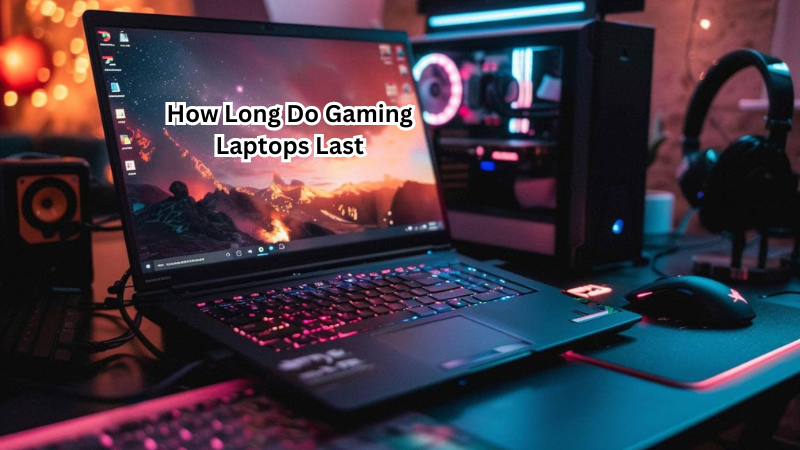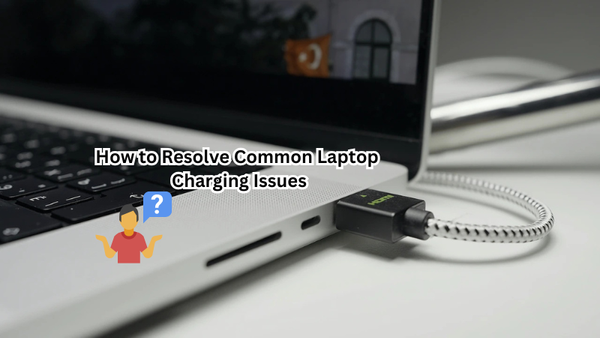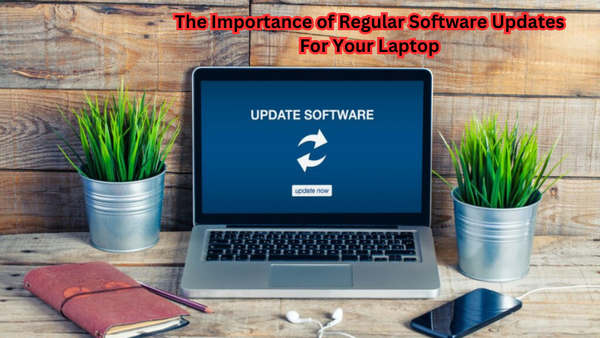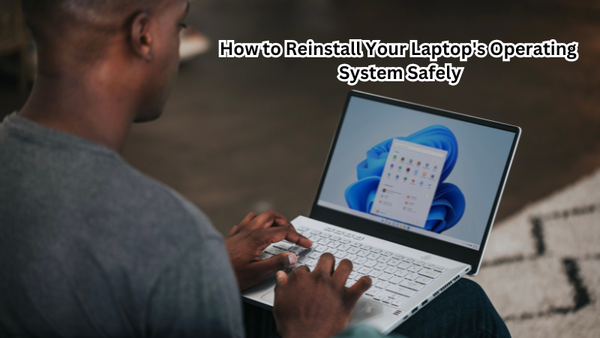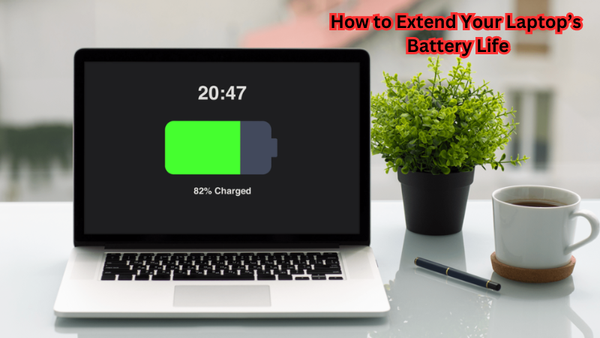Gaming laptops have surged in popularity, offering powerful performance in a portable package, perfect for both casual and hardcore gamers. As these devices become more integral to the gaming experience, understanding their lifespan is crucial for maximizing your investment.
How long can you expect your gaming laptop to last before it starts feeling sluggish or outdated? This question is vital not only for budget-conscious gamers but also for those who want to stay ahead in the gaming world.
In this blog post, we'll delve into the factors that impact the longevity of gaming laptops, from hardware components to usage patterns, and provide tips on how you can extend the life of your device.
Importance of Laptops Longevity
Before we dive into the details, let's first understand why the lifespan of a gaming laptop matters.
For many gamers, a laptop is not just a device for playing games but also an essential tool for everyday tasks like school or work. It's where you store important files, access the internet, and communicate with others. Therefore, having a reliable and long-lasting laptop is crucial in today's fast-paced digital world.
Moreover, gaming laptops are significant investments that can cost thousands of dollars. Knowing how long they will last allows you to plan your budget and make informed decisions when it comes to upgrades or replacements. Also, the longer your laptop lasts, the more value you get out of it.
How Long Do Gaming Laptops Last
Several factors can influence the longevity of a gaming laptop. Let's take a closer look at each one.
1. Hardware Components
The hardware components of a gaming laptop play a significant role in its lifespan. These include the processor (CPU), graphics card (GPU), RAM, and storage.
Processor (CPU)
The CPU is the brain of the laptop, responsible for carrying out all the instructions and calculations. The faster and more powerful the processor, the better your gaming experience will be. However, a high-performing CPU can also generate a lot of heat, which can affect its lifespan.
When a processor overheats, it can cause damage to its internal components, leading to system crashes or permanent failure. To prevent this from happening, it's crucial to regularly clean your laptop's cooling system and keep an eye on your device's temperature levels.
Additionally, choosing a laptop with a newer generation processor can also help extend its lifespan as they are designed to be more energy-efficient and generate less heat.
Graphics Card (GPU)
The graphics card is another critical component of a gaming laptop, responsible for rendering images and providing smooth gameplay. Just like the CPU, a powerful GPU can also produce a lot of heat, which can affect its lifespan.
To prolong the life of your GPU, make sure to clean your laptop's cooling system regularly and avoid overclocking it (increasing its speed beyond factory settings). You can also look into undervolting techniques that reduce power consumption while maintaining performance levels.
RAM
RAM is where temporary data is stored when you're using your laptop. The more RAM your device has, the faster and smoother it can run multiple applications simultaneously. However, having more RAM doesn't necessarily mean a longer lifespan for your laptop.
The lifespan of RAM is primarily affected by its usage. Constantly pushing your RAM to its limits by running memory-intensive games or applications can put a strain on the component and potentially decrease its lifespan. It's essential to manage your open programs and close any unnecessary ones to reduce the load on your RAM.
Also, keep an eye on the temperature levels of your laptop as high temperatures can also affect the performance and longevity of your RAM.
Storage
Having sufficient storage is crucial for gaming laptops as modern games often require large amounts of space. There are two types of storage commonly found in gaming laptops - hard disk drives (HDDs) and solid-state drives (SSDs).
HDDs are the traditional storage option, but they are slower than SSDs and have moving parts that can wear out over time. On the other hand, SSDs are much faster and more durable, making them a better choice for gaming laptops.
However, regardless of the type of storage, regular maintenance is necessary to ensure longevity. This includes defragmenting your HDD and managing your SSD's storage space to prevent it from getting too full.
2. Usage Patterns
How you use your gaming laptop can also impact its lifespan. Here are a few usage patterns that can affect the longevity of your device:
- Gaming for long periods: Playing games for extended periods without breaks can put excessive strain on your laptop's components, leading to overheating and potential damage.
- Not properly shutting down or restarting: Not shutting down or restarting your laptop regularly can cause issues with the operating system and lead to decreased performance over time.
- Frequent movement: Gaming laptops are designed to be portable, but constantly moving them around while they are running can cause damage to internal components.
- Lack of proper ventilation: Ensuring that your laptop has enough space for air circulation is crucial in preventing overheating and prolonging its lifespan.
3. Quality of Build
The quality of the build plays a significant role in the longevity of gaming laptops. Higher-end laptops with premium materials and better cooling systems tend to last longer than budget options made with cheaper materials.
Investing in a well-built gaming laptop may initially cost more, but it can save you money in the long run by lasting longer without needing frequent repairs or replacements.
4. Maintenance and Upkeep
Regular maintenance and upkeep are crucial in extending the lifespan of your gaming laptop. Here are some tips on how to maintain your laptop:
- Cleaning: Regularly clean your laptop's exterior, keyboard, and cooling system to prevent dust buildup, which can affect performance and cause overheating.
- Updates: Keep all software, drivers, and operating systems up to date to ensure optimal performance.
- Battery care: Properly using and maintaining your laptop's battery can also play a role in its longevity. Avoid letting it fully deplete before charging it and avoid leaving it plugged in for extended periods.
5. Brand Reputation
Lastly, the reputation of the brand you choose can also play a role in the longevity of your gaming laptop. Brands with a history of producing high-quality and durable laptops are more likely to have devices that last longer than those with a reputation for lower-quality products. Do your research before purchasing to ensure you're investing in a reputable brand.
In conclusion, several factors can influence the lifespan of a gaming laptop, including its hardware components, usage patterns, build quality, maintenance and upkeep, and brand reputation. By carefully considering these
Tips for Extending Your Gaming Laptop's Lifespan
Now that we've discussed the factors that impact a laptop's lifespan, here are some tips to help extend your gaming laptop's longevity:
- Choose high-quality components: When purchasing a new gaming laptop, opt for models with higher-quality hardware components that are designed to be more durable and energy-efficient.
- Regular cleaning: Keep your laptop clean and free of dust by regularly wiping down its exterior and keyboard and keeping the cooling system clear of any buildup.
- Manage usage patterns: Avoid prolonged gaming sessions without breaks, properly shut down or restart your laptop regularly, and avoid frequent movement while it is running.
- Proper ventilation: Ensure that your laptop has enough space for proper air circulation to prevent overheating.
- Perform regular maintenance: Keep all software and drivers up to date, defragment your HDD, and manage storage space on your SSD.
- Invest in a reputable brand: Do your research before purchasing a gaming laptop and invest in a reputable brand with a history of producing high-quality and durable devices.
By following these tips, you can help extend the lifespan of your gaming laptop and get the most out of your investment. Remember to also take care of your device by using it responsibly and avoiding any potential hazards that could cause damage.
What Kind of Actions Should Be Avoided to Ensure Longevity?
To ensure the longevity of your gaming laptop, several actions should be avoided. First and foremost, avoid using your laptop for prolonged periods without breaks, as this can put excessive strain on its components and potentially lead to overheating or damage.
It's also essential to regularly shut down or restart your laptop to prevent issues with the operating system and maintain optimal performance. Frequent movement while the laptop is running should also be avoided to prevent damage to internal components.
Additionally, make sure your laptop has proper ventilation by avoiding covering vents or placing it on surfaces that could block airflow. Finally, avoid any potential hazards such as spills or drops that could cause physical damage to your device.
FAQs
How long do gaming laptops typically last?
Gaming laptops typically last 3 to 5 years before they may struggle to run the latest games. With proper care, like cleaning and applying fresh thermal paste, a good gaming laptop can continue handling less demanding tasks like web browsing for even longer.
What factors affect how long a gaming laptop lasts?
The lifespan of a gaming laptop depends on how well it handles heat management and whether it can keep up with demanding games. Regular maintenance, such as cleaning the fans and using a cooling pad, can help extend the life of the entire laptop.
Can a good gaming laptop still perform after a few years?
Yes, a good gaming laptop can still perform well after a few years, especially for less demanding tasks like web browsing or older games. However, most gaming laptops may need upgrades or adjustments to run the latest games smoothly.
How can I extend the lifespan of my gaming laptop?
To extend the lifespan of your gaming laptop, ensure regular maintenance like applying thermal paste, using a cooling pad to reduce heat, and keeping the laptop clean. These steps can help most laptops, including gaming ones, run more efficiently over time.
Conclusion
In conclusion, understanding the lifespan of gaming laptops involves considering various factors such as hardware quality, usage intensity, and maintenance practices.
By paying attention to these details, you can significantly extend the life of your device. Regular maintenance, smart usage habits, and proper cooling are just a few strategies to keep your gaming laptop running smoothly for years.
As technology advances, staying informed about when to upgrade or replace your laptop is crucial for maintaining optimal performance. By applying the tips discussed in this post, you can ensure you get the most out of your investment, keeping your gaming experience exciting and uninterrupted. Stay proactive and empower yourself with these insights!
